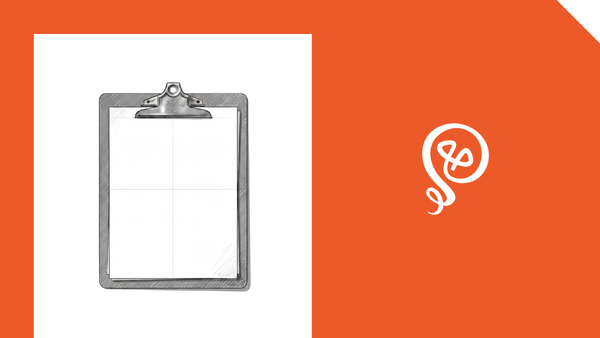4 Freelance Business Mistakes (And How to Avoid Them)
Tips from a former tech executive.

A few months ago, I was interviewed for a podcast called "Freelance Sucks." The host asked if there was anything I would change about launching a freelance business.
In all honesty, I couldn't think of anything. However, I also worked as an executive at a tech company prior to launching a freelance business. There were many lessons I learned as a decision-maker that I was able to apply quickly — without going through the "Oops, that was a mistake" moments.
That being said, I've talked with many freelancers and solopreneurs (as friends or on social media) who don't have any type of corporate background. There are a lot of missteps that can happen, especially early in a freelance business. They're not irrecoverable, but they can set you back.
I want to share some of the most common freelance mistakes and what I did that worked for me (and helped me earn six figures in my first year of business).
1. Not thinking about your pipeline
The hardest thing about launching a freelance business is finding clients. The second hardest thing is maintaining a consistent income.
One of the biggest mistakes I see freelancers make is waiting until they lose a client to start looking for new clients. They ignore marketing efforts while they're fully booked, and then panic when they lose a large chunk of their income.
Marketing doesn't work that way. You need to be on a prospective client's mind long before they reach out. Because odds are, there's a timing mismatch. You need a client when they're not looking, and they're looking when you're not marketing yourself.
I market myself daily (on LinkedIn). There are ways to market yourself without the cringe. I don't necessarily post about my client work, but I keep myself in prospective clients' feeds. As a result, I have a steady stream of inbound inquiries.
I will always take a call with a prospective client. I never consider myself at "max capacity." I have an "ideal capacity" (balancing client work with other projects and my family), but I could always take on a bit more. This is balanced out by months when I am below capacity.

2. Not protecting your work or your time
Inexperienced freelancers can find themselves in difficult situations because they don't know how to say "no" to a client or because they don't have a good contract in place.
A solid contract that clearly outlines the scope of the project protects you. You don't have to do anything outside of the agreement. If a client asks you to, you can point back to the agreement and ask for more money.
I had a client who asked me to do something outside of the agreement. I told the client it would cost more money, and he declined because he didn't want to pay more. Then he didn't pay my invoice for the work I'd already completed. In both of these instances, the contract protected me. I threatened legal action because I knew I had delivered according to the scope of the agreement (and he eventually paid).
A contract is one thing. Enforcing it is another. You have to be willing to stand up to clients and prevent "scope creep." Even if the client's request seems like a small ask today, it could quickly turn into a bigger ask next time.
Plus, if you deliver anything outside of the scope, it makes your work less valuable. Let's say you agreed to a project for 20 hours for $1,000. The client asks you for something additional and it takes you another two hours. That $50/hour you were earning? Now it's only worth $45/hour. You donated your time to your client — and it came at a cost to your business.
I have one exception to my "no work outside of scope" rule: I'll do something if I think it has a business benefit. For example, maybe the client is well-connected and might refer work to me. Or it's a type of project I don't currently have in my portfolio. I see potential future earnings from fulfilling the client's request and making them happy.
3. Not building systems early
A lot of freelancers I know are not systems people. They run project management out of a notebook or Google Sheet, and their finances are a mess at tax time. They think, "I'm just one person with a few clients; I don't need systems yet."
That mentality is incorrect for a few reasons. First, the worst time to build systems is when you're underwater. Suddenly, you have a bunch of clients, and your spreadsheet isn't cutting it anymore. You also won't have the bandwidth to explore a freelance project management system.
Second, systems make you appear more professional to clients. If you have a streamlined process for everything, clients will know that you take your business seriously.
Build systems early. I built a project management system as soon as I had more than one client. I had to think about future growth — which can be a bit hard, but most tools are adaptable and you can change them as you grow.

4. Not maintaining a portfolio or collecting recommendations
Most buyers are savvy. They'll check you out before reaching out or responding to a cold pitch. If you don't have a stellar portfolio or solid client recommendations, you'll find yourself lost in a sea of thousands of freelancers.
Update your freelance portfolio regularly. As a freelance fintech writer, I do this about once a month, making sure my writing samples reflect my best work.
I also collect client testimonials regularly. I use LinkedIn for this because it serves a dual purpose. The testimonials live permanently on my LinkedIn profile, and I use them throughout my marketing and self-promotion. I include some testimonials on my website, plus I have a Canva graphic that I use to share testimonials on social media.
You never know when clients are checking out your website or social profiles. You have to make sure you're always showcasing your best work.
A thriving business leads to freedom
A thriving business is one that requires less work over time. You might think thriving business = more work to earn more income, but the opposite is true. You protect your time, so you earn more per project. You collect great testimonials so you can find better clients. With better clients, you can charge more so you can earn more with less work.
It's almost never overnight. But put some good strategies in place early, and you'll be in much better shape and on the path to a sustainable business sooner.
Not sure where to get started with a client proposal or contract? You can check out this free checklist and download a template to use.







